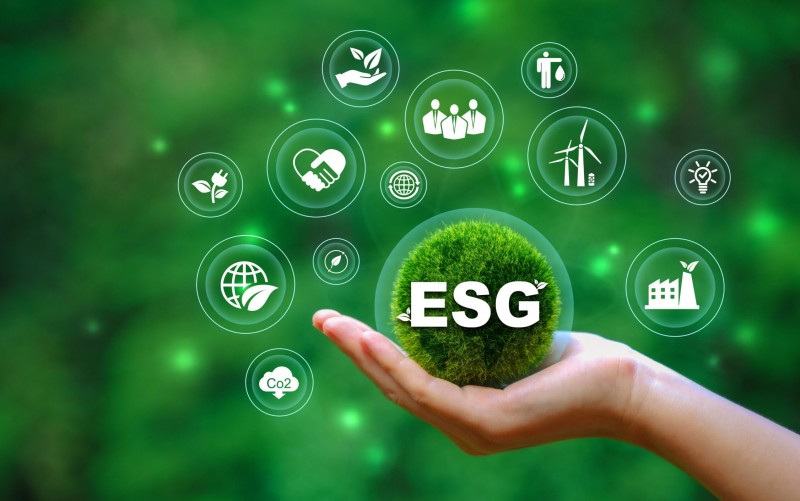
Image credit: Forbes
A significant shift is occurring in the venture capital (VC) landscape, with a growing emphasis on integrating environmental, social and corporate governance (ESG) principles into VC start-up portfolios.
In the past few years, the focus on implementing ESG has been on public-listed companies. But this scrutiny is now trickling down to start-ups as they are part of the supply chain for bigger companies.
In an era defined by rapid technological advancements and a growing consciousness of environmental sustainability, the automotive industry is at a crossroads. As the global call for greener and more connected mobility solutions intensifies, carmakers, including UMW Toyota Motor Sdn Bhd, are steering towards a sustainable and connected future.
Recognising this need, Malaysian Venture Capital Management Bhd (Mavcap) introduced the ESG Toolkit for start-ups in December 2023. The toolkit is designed to assist start-ups in evaluating and enhancing their sustainability efforts across various dimensions. It consists of three key components, each addressing specific aspects of a start-up’s ESG journey. The toolkit touches on ESG readiness, issues faced by start-ups and a disclosure checklist.
“We meet start-ups and small and medium enterprises (SME) on a daily basis. And the least that they want to think about is ESG because they are bootstrapped and looking for funding. However, responsible investors are moving towards ESG; thus, these investors are looking for start-ups and SMEs that implement ESG within their businesses,” says Noor Amy Ismail, chief operating officer of Mavcap.
“Mavcap will have to play an integral role in bridging the knowledge gap between local start-ups and SMEs with responsible investors. Through this toolkit, we are matching the language, coordinating a checklist of necessary ESG data, while also taking into account all the international standards and feedback from VCs.”
Despite many existing ESG standards and frameworks on the market, start-ups do not have one tailored to them. Mavcap sees its toolkit as the first step in engagement with start-ups on this matter.
“The abundance of available [ESG] tools has reached a level where it becomes challenging [for start-ups] because there are too many standards. Additionally, some tools may give the impression of greenwashing, creating a dilemma for maintaining integrity,” says Noor Amy.
And yet, the start-ups will likely have to embark on this journey if they want to seek funding from VCs going forward.
VCs are increasingly recognising the need to manage their funds responsibly in the face of a complex and volatile business environment, alongside consumer demand for more sustainable solutions, she observes.
“The scale of impact investments (that have a goal to create positive impact) is staggering, with approximately US$2.28 trillion (RM10.8 trillion) reported by the International Finance Corporation. This presents a massive opportunity for businesses, including start-ups, to tap into these funds by aligning with ESG principles.”
Additionally, ESG compliance has become essential for start-ups seeking collaboration and partnerships with multinational corporations (MNCs), adds Noor Amy. Many MNCs are increasingly prioritising ESG-aligned partners, making it imperative for start-ups to report, communicate and measure their ESG practices to be included in these supply chains.
Components of the ESG Toolkit
The ESG Toolkit is aligned with the Sustainability Accounting Standards Board, UN Principles for Responsible Investment and Sustainable Development Goals, according to Mavcap.
The first component, the Startup ESG Readiness Profiling, is an evaluation aimed at gauging the level of sustainability adoption within an organisation. This assessment spans four dimensions: management, operation, supply chain and resource allocation.
The second component, the Startup ESG Issues Exposure Check, takes an approach by offering VCs insights on specific ESG issues faced by start-ups. By doing so, VCs are better equipped to guide start-ups towards a more sustainable and responsible trajectory, contributing significantly to their long-term success.
The third component is the Startup ESG Disclosure Checklist, which provides VCs with insights into the extent of ESG disclosure achieved by a start-up. Derived from the Capital Market Malaysia Simplified ESG Disclosure Guideline, this checklist offers a comprehensive assessment of a startup’s ESG practices.
Melissa Yeoh Beng Chin, Mavcap associate director of ESG and stakeholder, says the toolkit serves as a sense check or health check to help start-ups gather their ESG data. It also provides support to other players in the ecosystem.
“The primary objective is to collaborate closely with general partners (GPs), recognising that they have varying levels of expertise. Some GPs are already ahead in the game, while others are still navigating the ropes. Our intention is to align them, fostering a collaborative environment where knowledge and experiences can be shared,” says Yeoh.
The goal is to bring them together and leverage the collective expertise within the ecosystem, she adds. “In our efforts, we have encountered numerous solution providers expressing interest in collaborating. While we acknowledge that some already possess advanced solutions, we emphasise the importance of establishing a strong foundational understanding.”
Source: https://theedgemalaysia.com/node/701219

